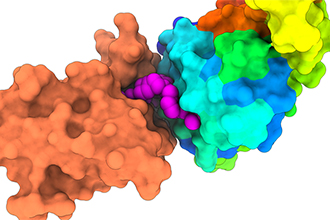The partnership between WEHI and Boehringer Ingelheim combines broad and deep expertise in biology and therapeutic targeting of IAP proteins, protein degradation and drug discovery and development. The collaboration focuses on the generation of IAP-based protein degraders (IPDs) that can be used for therapeutic concept work and in vivo studies.
Head of Drug Discovery Sciences at Boehringer Ingelheim’s Vienna Research Site, Dr Peter Ettmayer, said he was looking forward to a fruitful collaboration.
“We have found unique, world-class scientific knowledge on the IAP family of proteins at WEHI. This partnership gives us the opportunity to leverage WEHI’s expertise and turn it into drug candidates through a collaborative program,” he said.
The three-year collaborative project will be conducted under the direction of a joint steering committee, leveraging existing capabilities and expertise within WEHI and Boehringer Ingelheim. Post collaboration, Boehringer Ingelheim will be responsible for further development, regulatory approvals and commercial activities while WEHI will receive milestone payments and royalties on sale. Financial terms of the collaboration remain undisclosed.
WEHI Head of Biotechnology and Commercialisation Dr Anne-Laure Puaux said the two organisations structured a sophisticated and mutually beneficial deal that established key business principles and laid the foundations for a strong relationship.
“This exciting collaborative program is a testament to our ability to work together with global industry partners to deliver potential ‘first-in-class’ drug candidates. Academic-industry partnerships hold immense potential for translating research discoveries into new treatments for patients,” Dr Puaux said.
Alliance Manager at Boehringer Ingelheim, Dr Karl-Heinz Heider, said the organisations had worked collaboratively to secure the deal.
“The alliance between WEHI and Boehringer Ingelheim was built upon insightful scientific discussions and has laid the foundations for a strong partnership built on trust between the two organisations,” he said.



